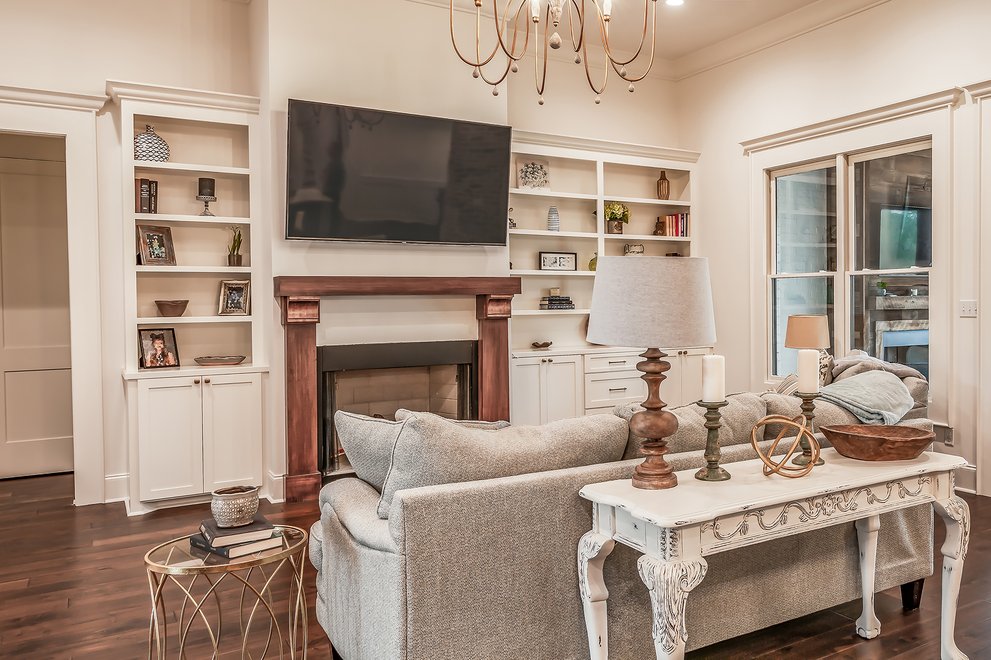When I was a kid I was a voracious reader. Journey to the Center of the Earth, MAD magazine, Harriet the Spy – whatever I could get my hands on. So it isn’t that surprising that I would read a pamphlet about a self-cleaning kitchen, when I wasn’t interested in kitchens or cleaning as a 10 year-old boy. The booklet may have been from the 60’s or 70’s, though I was reading it second hand in the 80’s, but it was about the “house of the future”. The thing that stuck with me from this house was that the kitchen could be sealed up tight, at which point a car wash style cleansing and rinsing of all surfaces ensued. Now, as an adult, the idea of this type of self-cleaning kitchen is not as attractive, but it is what I thought back to when I decided to write about home automation. The question I think we should apply to any invention designed to improve our lives in our homes is: Does it solve a problem we need solved efficiently and affordably?
Though we’ve only recently started using the term “home automation," the concept is nothing new. A dishwasher is home automation. Many of us have grown so dependent on this appliance we take it for granted and only think it is special if it texts our cell phone when it finishes a cycle. Any technology that reduces the time we spend caring for our house and the things in it is home automation. When you compare lugging laundry to the laundromat with a washer and dryer in the house, the value is obvious: If you can afford the up-front cost, these appliances will surely save you time and improve your life. At some point for each of us, the value in a new gadget crosses the line from valuable to convenient and then again to simply neat. The lines are different for all of us, and this is what you need to keep in mind when thinking about what home automation technology to include in your new home.
My company is currently finishing up a whole house remodel for a couple relocating to Philadelphia. Many parts of this home are automated, from the lights and window blinds, to the intercom system. In my house, where someone is almost always home, a video intercom viewable from my smart phone would be a cool gimmick. For my client, who is away from home much of the time, it is a valuable tool that allows her to both see who is coming and going, and unlock the door for them – so packages can be dropped off, dogs can be walked, and the plumber can unclog a drain – all when my client is in Chicago instead of at home in Philadelphia.
There are many new technologies out there vying for our attention and cash. The question we have to ask is whether they are providing a solution to a problem we have. If you habitually leave wet laundry in the washing machine and have to run the cycle over again when it gets musty, then a washer that texts you makes sense – if you keep your phone handy. At my house I installed wireless switches that allow me to turn on and off lamps and my stereo remotely. My wife likes lamps better than overhead lights, but I don’t want to go around the room turning them all on and off. Simple plug in modules allow me to turn them all on and off at one time and I value this. You might not.
Currently, home automation is either done piecemeal, with many different technologies, each with its own learning curve (your texting dryer, Nest thermostat and Insteon wireless switches), or with a whole house system like Control4. A whole house system is going to cost more, but can communicate with some of the different systems like those mentioned above, and reduce that learning curve. Google recently introduced a slimmed down version of its Android operating system (Brillo) and a language, called Weave, that smart devices can use to talk to each other. With anything that is designed to make our lives easier, actual ease of use is a critical component.
If you are trying to automate an existing home, you will inevitably be replacing things that are otherwise in good working order, so that you can have smart phone controlled door locks and lighting. If you are building a home from scratch, the added cost to incorporate features you find valuable may not be that significant. If you want ease of use though, it pays to hire a consultant. If I have learned anything on our current remodeling project with many automated features, it is that the automation consultant is critical. There are too many systems out there. Maybe someday Google’s operating system will prevail and controlling everything will be as simple as checking your email, but we’re not there yet, and having an expert set it up for you will put you in a better position to let the technology do the work so you can relax. After all, that’s what you’re paying for.
Though we’ve only recently started using the term “home automation," the concept is nothing new. A dishwasher is home automation. Many of us have grown so dependent on this appliance we take it for granted and only think it is special if it texts our cell phone when it finishes a cycle. Any technology that reduces the time we spend caring for our house and the things in it is home automation. When you compare lugging laundry to the laundromat with a washer and dryer in the house, the value is obvious: If you can afford the up-front cost, these appliances will surely save you time and improve your life. At some point for each of us, the value in a new gadget crosses the line from valuable to convenient and then again to simply neat. The lines are different for all of us, and this is what you need to keep in mind when thinking about what home automation technology to include in your new home.
My company is currently finishing up a whole house remodel for a couple relocating to Philadelphia. Many parts of this home are automated, from the lights and window blinds, to the intercom system. In my house, where someone is almost always home, a video intercom viewable from my smart phone would be a cool gimmick. For my client, who is away from home much of the time, it is a valuable tool that allows her to both see who is coming and going, and unlock the door for them – so packages can be dropped off, dogs can be walked, and the plumber can unclog a drain – all when my client is in Chicago instead of at home in Philadelphia.
There are many new technologies out there vying for our attention and cash. The question we have to ask is whether they are providing a solution to a problem we have. If you habitually leave wet laundry in the washing machine and have to run the cycle over again when it gets musty, then a washer that texts you makes sense – if you keep your phone handy. At my house I installed wireless switches that allow me to turn on and off lamps and my stereo remotely. My wife likes lamps better than overhead lights, but I don’t want to go around the room turning them all on and off. Simple plug in modules allow me to turn them all on and off at one time and I value this. You might not.
Currently, home automation is either done piecemeal, with many different technologies, each with its own learning curve (your texting dryer, Nest thermostat and Insteon wireless switches), or with a whole house system like Control4. A whole house system is going to cost more, but can communicate with some of the different systems like those mentioned above, and reduce that learning curve. Google recently introduced a slimmed down version of its Android operating system (Brillo) and a language, called Weave, that smart devices can use to talk to each other. With anything that is designed to make our lives easier, actual ease of use is a critical component.
If you are trying to automate an existing home, you will inevitably be replacing things that are otherwise in good working order, so that you can have smart phone controlled door locks and lighting. If you are building a home from scratch, the added cost to incorporate features you find valuable may not be that significant. If you want ease of use though, it pays to hire a consultant. If I have learned anything on our current remodeling project with many automated features, it is that the automation consultant is critical. There are too many systems out there. Maybe someday Google’s operating system will prevail and controlling everything will be as simple as checking your email, but we’re not there yet, and having an expert set it up for you will put you in a better position to let the technology do the work so you can relax. After all, that’s what you’re paying for.






